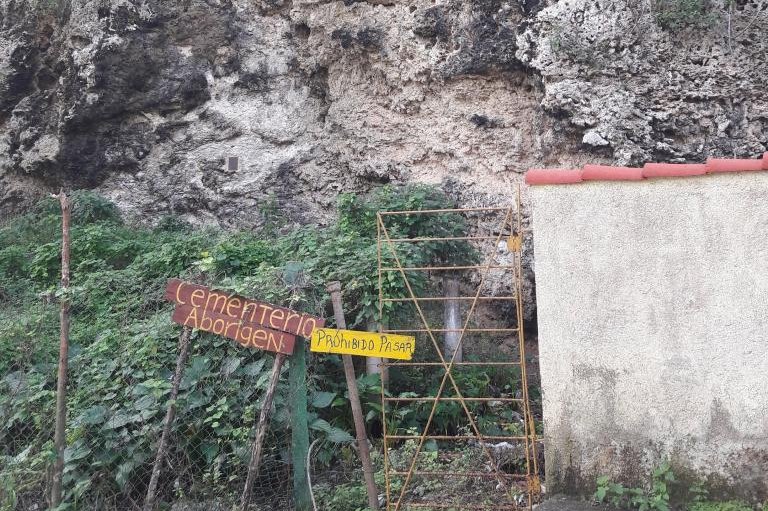Scientists extracted genomic data from ancient remains collected at 16 archaeological sites in the Caribbean, which revealed the history of people arriving on the islands. Photo by Kathrin Nägele
June 5 (UPI) -- Until now, the peopling of the Caribbean -- one of the last parts of the Americas to be settled by humans -- has remained poorly understood.
Thanks to new analysis of the genomes of 93 ancient Caribbean islanders, researchers are gaining new insights into Caribbean's earliest settlers.
Research into the peopling of the Caribbean has been held back by the region's hot, humid weather.
"In tropical climates DNA deteriorates faster, making it more difficult to reconstruct the sequences to a degree that allows us to answer the questions we have," Kathrin Nägele, doctoral student at the Max Planck Institute for the Science of Human History in Jena, Germany, told UPI in an email.
Scientists have also struggled to find funding for excavation work on the islands.
"Funding is an issue as larger funding bodies still tend to give more money to European or North American researchers rather then to Latin American ones," Nägele said.
Thanks to breakthroughs in DNA extraction and genomic analysis methods, including a technique called targeted enrichment, scientists were able to acquire genome-wide information from ancient human remains dating to between 400 and 3,200 years ago.
The data analysis -- detailed this week in the journal Science -- suggests the western Caribbean was populated first by a pair of dispersals that were extensions of earlier population dispersals across North America. Several hundred years later, around 2,800 years ago, a third wave of settlers arrived from South America.
Each dispersal featured a surprising amount of genetic diversity, which supports previous studies suggesting the earliest Caribbean settlers were biologically and culturally diverse.
"To us it was surprising to see the variation in the Archaic Age communities, especially the connection to ancient Californian individuals," Nägele said. "Also to see so little evidence for mixture between the earlier and later groups is very surprising. As in most other places in the world, people mix when they meet."
Though researchers can't be certain exactly where the various waves of settlers departed the mainland, they know there was no land bridge to make travel easier. Instead, researchers estimate that the earliest island settlers were capable of traversing the Caribbean Sea by boat.
Scientists hope to conduct more precise genomic analysis in the future to better understand the interactions between Caribbean groups and the people of the circum-Caribbean.















